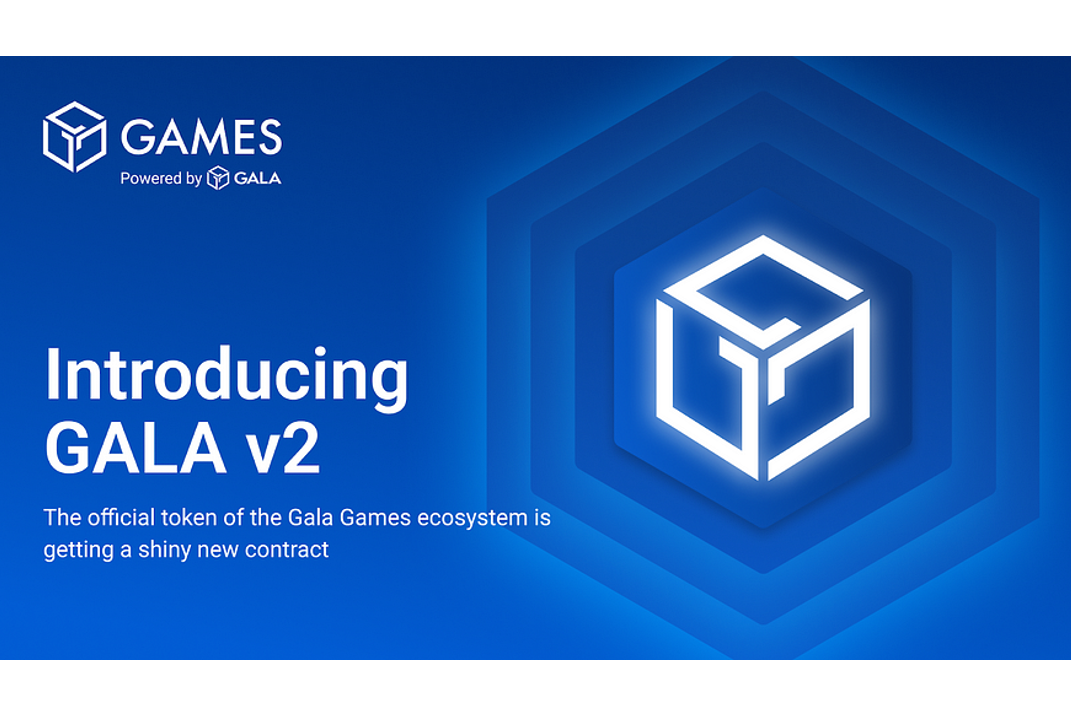
Gala Games is an ambitious project. By developing user-friendly, easy-to-play, and easy-to-access games, it aims to open the doors of Web3 gaming to Web2.0 users.
Since its launch in 2020, it has become a complex ecosystem, including Gala Music and Gala Films, and added dozens of new games, some of which are played in real-time.
For current and future games to be developed without any technical limitations, Eric Schiermeyer’s team felt there was a need to upgrade the platform's Ethereum contract.
According to Gala Games’ official blog, the new contract brings security, scalability, and sustainability improvements, reflected in a more formalized burning mechanism, enhanced voting scheme, and other technical changes. As the official announcement of the upgrade, made on April 18, stated:
“This upgrade to the Ethereum contract for the Gala token brings a host of improvements to the table, including enhanced burn mechanisms, security enhancements, and future upgradeability.”
On May 15, Gala Games, currently one of the most relevant Web3 gaming projects, upgraded its contract, meaning that $GALA, its underlying token, was also updated.
To alter the tokens held by users it first took a snapshot of all existing tokens on Ethereum wallets and subsequently airdropped the new tokens on an automatic 1:1 conversion to the existing wallets.
Deprecating an old contract is not new for Gala Games, as it already went through the same process when it reissued its ERC-1155 tokens to the ERC-20 standard.
But despite the team’s efforts for a seamless all-users-encompassing transition, many were left out.
At the root of the problems is Gala Games’ ambition and timing.
Regarding ambition, when the objective of a project is to bring in a large number of new users to a complex ecosystem, it must keep in mind that it has to cater to very different levels of knowledge and experience. The campaign announcing the new $GALA token failed to consider that many Gala Gamers are still largely unfamiliar with the Web3 community, concepts, and technicalities.
Amongst other issues, there was a flood of messages on Gala Games social media from users concerned over tokens that hadn't been minted yet, therefore were not part of the upgrade.
Given the perceived complexity of the upgrade, some users, especially newbies, preferred to lose money than to try to do whatever they were supposed to.
These are legitimate concerns from users that Gala Games could have prevented if only it had planned the upgrade a little better.
But the v1 to v2 $GALA move was announced less than a month before the upgrade, awfully short notice given that:
- The upgrade required many users to change the location of their tokens;
- After the upgrade, the “old contract” tokens became useless.
Gala Games reached out to cryptocurrency exchanges and NFTs marketplaces before making the announcement but as chief marketing officer of Gala Jason Brink noted on Twitter, “Most exchanges won’t have a discussion about a new contract or an upgrade until AFTER it has been announced.”
After the announcement, not all exchanges followed the same modus operandi. In some, like Binance, the process happened seamlessly. On OpenSea, transactions were temporarily disabled before the upgrade, to avoid $GALA tokens getting caught up in smart contracts at the time of the snapshot.
Coinbase caught some users off guard by delisting the previous version of $GALA and announcing it would no longer support the gaming platform tokens, which came as a shock given that it offered little to no explanation as to why it was doing that.
Decentralized crypto exchanges run on smart contracts, meaning that if $GALA tokens were on a smart contract at the time of the snapshot they wouldn't be "seen", and therefore lose their worth.
While the Gala Games team tried to reach all players on the market, many smaller crypto exchanges and their users remained unaware of the upgrade.
Then, there were also the users that had their tokens in liquidity pools or were using them as collateral for loans, that faced significant losses by pulling out their tokens before due time.
While the gaming platform says they “have successfully completed a monumental milestone in our journey,” not all users feel the same.
By altering its contract on such short notice, Gala alienated users. With more time and better planning, it could have been avoided.

